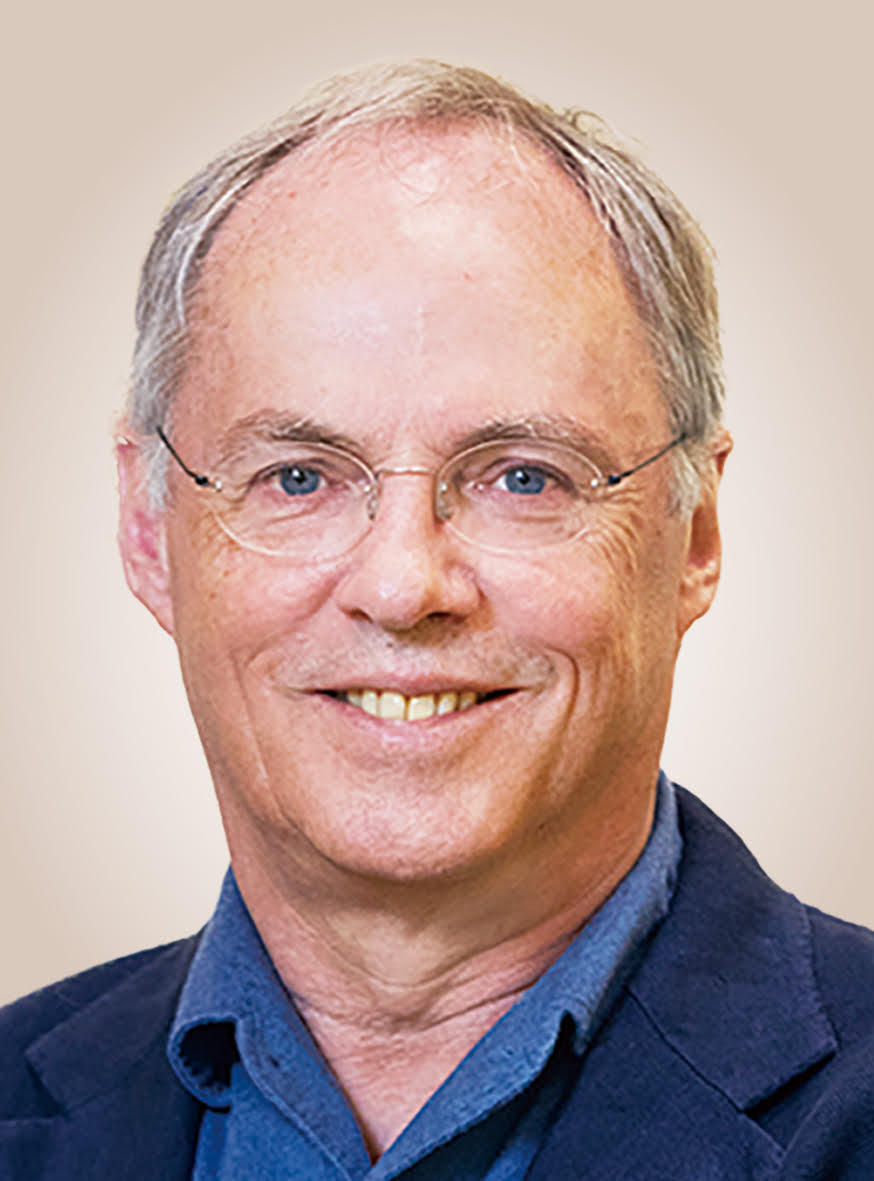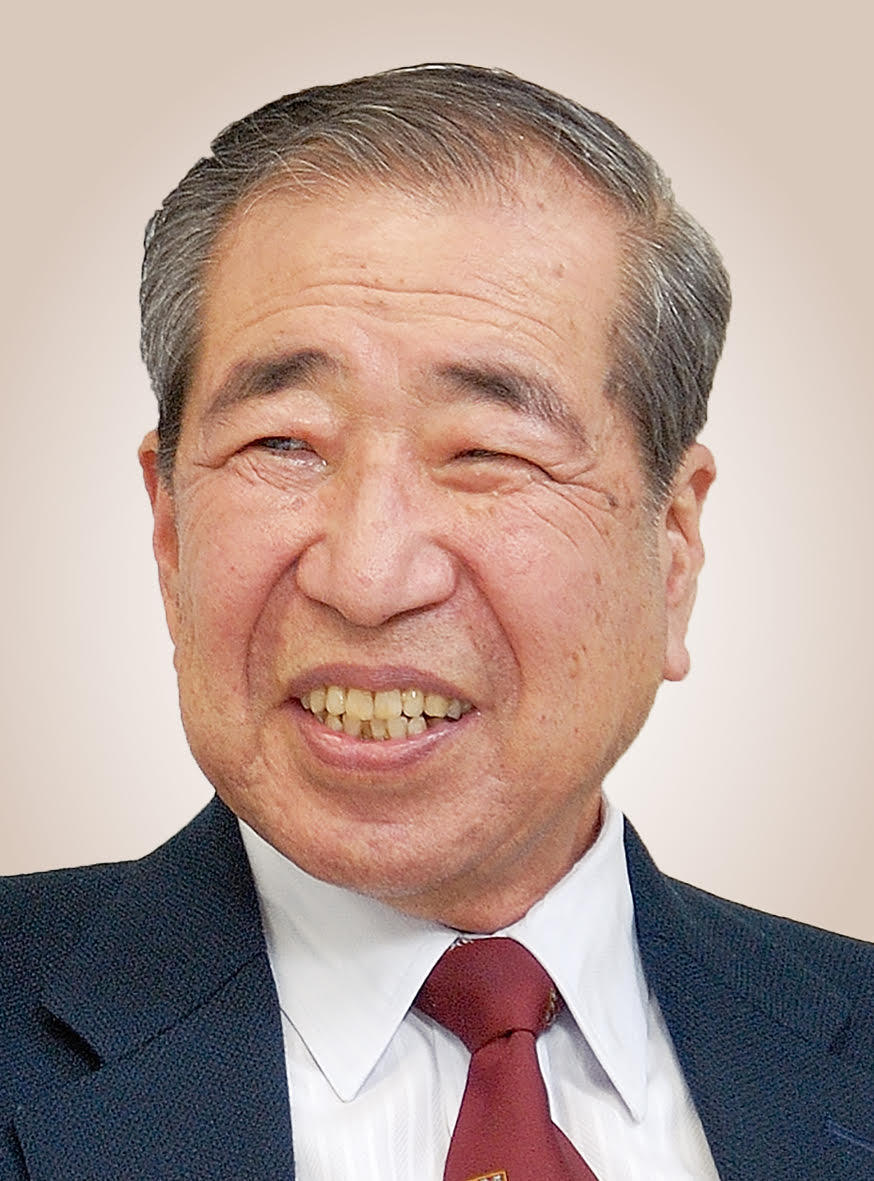The 2019 Keio Medical Science Prize Awardees
Hans C. Clevers, M.D., Ph.D.

- Professor in Molecular Genetics, University Medical Center Utrecht
- Principal Investigator at Hubrecht Institute of the Royal Netherlands Academy
and at Princess Máxima Center for pediatric oncology
Website
https://www.hubrecht.eu/research-groups/clevers-group/
Reason for Selection
Wnt signaling in Stem Cells and Organogenesis
The Wnt molecular family is known to include many extremely important biological signals that regulate development, differentiation, stem cell maintenance, and carcinogenesis. Dr. Hans C. Clevers first isolated and identified the T-cell factor (Tcf) family, the most important transcription factor in Wnt signal activation, and he has consistently studied Wnt signaling thereafter. Dr. Clevers proposed that Wnt signaling is involved in stem cell regulation, organogenesis and tumorigenesis, and identified Lgr5 as a downstream target gene of Wnt. By tracking Lgr5 expression, Dr. Clevers' research group has made it possible to visualize stem cells in vivo. In addition, he developed organoid technology that makes it possible for intestinal epithelial stem cells to grow outside the body indefinitely. This technology can also be used with various other tissue stem cells, such as those from liver, pancreas, stomach, and lung. Dr. Clevers' work in these areas has contributed greatly to elucidating the pathology of various diseases, including cancer.
Background
Education
- 1975 - 1982
- M.Sc. Biology, University of Utrecht
- 1978 - 1984
- M.D. University of Utrecht
- 1984 - 1985
- Ph.D. University of Utrecht
Positions
- 1985 - 1989
- Postdoctoral Fellow. Cox Terhorst Lab at the Dana-Farber Cancer Institute, Harvard Medical School, Boston MA, USA
- 1989 - 1991
- Assistant Professor, Department of Clinical Immunology, University of Utrecht
- 1991 - 2002
- Professor and Chairman, Dept. of Immunology, Faculty of Medicine, University of Utrecht
- 2002 - 2012
- Director of the Hubrecht Institute, Royal Netherlands Academy of Arts and Sciences
- 2012 - 2015
- President of the Royal Netherlands Academy of Sciences (KNAW), Amsterdam
- 2015 - 2019
- Chief Scientific Officer/Director Research of the Princess Máxima Center for pediatric oncology, Utrecht
- 2002 -
- Professor in Molecular Genetics, University Medical Center Utrecht
- 2002 -
- Principal Investigator of a research group of ~40 scientists at the Hubrecht Institute, Utrecht
- 2015 -
- Principal Investigator at the Princess Máxima Center
Major Honors/Awards
- 2004
- Louis-Jeantet Prize for Medicine, Geneva, Switzerland
- 2011
- The Ernst Jung Medical Award, Germany
- 2012
- The Heineken Prize for Medicine
- 2013
- The Breakthrough Prize in Life Sciences
- 2016
- The Körber European Science Prize, Germany
Comments
It is a great honour for me to be awarded the 2019 Keio Medical Science Prize and to receive this prize together with Prof. Tadamitsu Kishimoto. A major reason for the award is the development of three-dimensional culture systems for human mini-organs in a dish, also known as organoids. The key experiments for this technology were done by a young Japanese scientist in my lab, Dr. Toshiro Sato, who was recently promoted to professor at Keio University.
Tadamitsu Kishimoto, M.D., Ph.D.

・Professor, Immunology Frontier Research Center, Osaka University
Reason for Selection
IL-6: From Molecule to Medicine
Professor Tadamitsu Kishimoto first discovered interleukin 6 (IL-6) as an antibody production-promoting factor. He subsequently succeeded in cloning of the genes encoding IL-6 and the IL-6 receptor, and elucidated the mechanism underlying IL-6 signal transduction. His group further showed that IL-6 is involved in various diseases, including rheumatoid arthritis and multiple myeloma. Based on this basic research, Dr. Kishimoto developed tocilizumab, an anti-IL-6 receptor antibody that inhibits the action of IL-6, and established it as a therapeutic strategy for Castleman's disease and rheumatoid arthritis. Dr. Kishimoto has made enormous contributions to our understanding of the biological and medical roles of IL-6, from its discovery, to the elucidation of its mechanism of action and therapeutic applications, as well as to cytokine research. His achievement is undoubtedly worthy of the Keio Medical Science Prize.
Background
Education
- 1964
- M.D. Osaka University
- 1969
- Ph.D. Osaka University
Professional Appointments
- 1991-1998
- Professor and Chairman, Department of Medicine III, Osaka University Medical School
- 1995-1997
- Dean, Osaka University Medical School
- 1997-2003
- President, Osaka University
- 2004-2006
- Member, Council for Science and Technology Policy, Cabinet Office
- 2007-
- Chairman of the Board of directors, Senri Life Science Foundation
- 2011-
- Professor, Immunology Frontier Research Center, Osaka University
Major Honors/Awards
- 1992
- Imperial Prize from the Japan Academy
- 1998
- The Order of Culture from Emperor
- 2009
- The Crafoord Prize from the Royal Swedish Academy of Sciences
- 2011
- The Japan Prize
- 2017
- King Faisal International Prize from Saudi Arabia
Professional Activities
- 1995
- Member, the Japan Academy
- 2007
- President, the 27th General Assembly of the Japanese Medical Association
- 2010
- President, the 14th International Congress of Immunology
Comments
It is truly my pleasure to receive this prestigious prize in recognition of my forty years of research on IL-6, the discovery of which, together with IL-6 signal transduction, have led to the development of the anti-IL-6 receptor antibody. This antibody is now widely used in more than a hundred countries for the treatment of rheumatoid arthritis (RA), giant cell arteritis, and cytokine storm and has saved millions of patients. I am also extremely pleased that our series of studies has helped inform many internationally recognized immunologists. I am now 80 years old, but this kind of honor encourages me to continue my research. Thank you very much.
